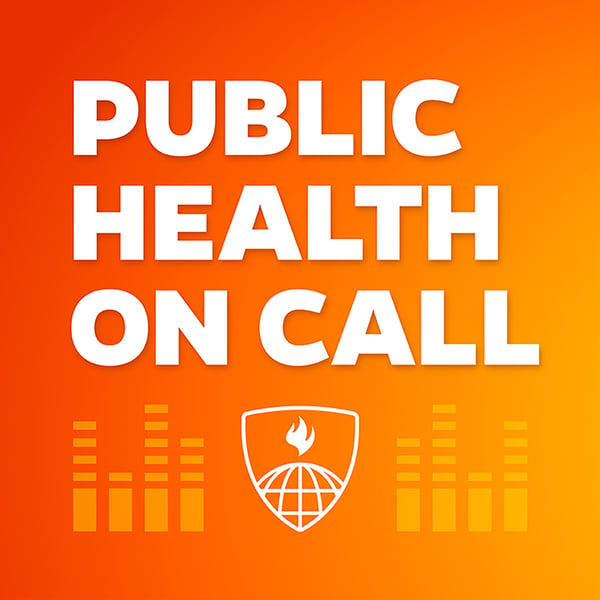865 - Deep-Sea Mining
Public Health On Call
The Johns Hopkins Bloomberg School of Public Health
4.8 • 620 Ratings
🗓️ 10 March 2025
⏱️ 22 minutes
🧾️ Download transcript
Summary
About this episode:
At the bottom of the world’s oceans lie valuable deposits of cobalt, manganese, and other minerals. In today’s episode: a deep dive on deep-sea mining, the environmental impacts, and how the world might approach regulating mining in areas that technically belong to everyone.
Guests:
Andrew Thaler is a deep-sea ecologist, conservation technologist, and an ocean educator.
Host:
Lindsay Smith Rogers, MA, is the producer of the Public Health On Call podcast, an editor for Expert Insights, and the director of content strategy for the Johns Hopkins Bloomberg School of Public Health.
Show links and related content:
-
@drandrewthaler—Bluesky
-
Deep-sea Mining: What went down in 2024?—Southern Fried Science
-
Withdrawal Agreement Could Signal Shift in Deep Sea Mining Activity—Forbes
Transcript information:
Looking for episode transcripts? Open our podcast on the Apple Podcasts app (desktop or mobile) or the Spotify mobile app to access an auto-generated transcript of any episode. Closed captioning is also available for every episode on our YouTube channel.
Contact us:
Have a question about something you heard? Looking for a transcript? Want to suggest a topic or guest? Contact us via email or visit our website.
Follow us:
-
Here's our RSS feed
Note: These podcasts are a conversation between the participants, and do not represent the position of Johns Hopkins University.
Transcript
Click on a timestamp to play from that location
| 0:00.0 | Welcome to Public Health On Call, a podcast from the Johns Hopkins Bloomberg School of Public Health, |
| 0:05.9 | where we bring evidence, experience, and perspective to make sense of today's leading health challenges. |
| 0:16.3 | If you have questions or ideas for us, please send an email to public health question at jh.h. |
| 0:22.6 | That's public health question at jh.g.u.edu for future podcast episodes. |
| 0:31.6 | It's Lindsay Smith Rogers. And today, something a little different. We go to the deepest part of the ocean to talk about deep sea mining. |
| 0:40.4 | Dr. Andrew Thaler, a deep sea ecologist and ocean educator, tells me all about what's happening |
| 0:45.5 | in the field of deep sea mining, including what we're looking for, how it works, and the |
| 0:50.2 | potential environmental impacts. |
| 0:52.1 | We also discuss the law of the sea, |
| 0:54.8 | a set of international laws that governs the use of marine resources. |
| 0:58.9 | Let's listen. |
| 1:00.1 | Andrew Thaler, thank you so much for joining us on public health on call. |
| 1:03.6 | How are you doing today? |
| 1:04.6 | I am doing just great. |
| 1:06.1 | Great. |
| 1:06.8 | Well, tell us a little bit about yourself and your work and what you're doing. |
| 1:11.7 | So I am a deep sea ecologist. My work orbits around how humans use and misuse technology |
| 1:18.2 | to explore and exploit the deepest parts of the ocean. And so through that, I do a variety |
| 1:24.2 | of different kinds of research programs, most of them surrounding deep sea mining, |
| 1:28.2 | as well as microplastics in the deep sea. |
| 1:30.7 | And I also run an environmental consulting firm where I consult on high seas policy, |
| 1:35.0 | a deep sea ecology, conservation technology, and education. |
... |
Please login to see the full transcript.
Disclaimer: The podcast and artwork embedded on this page are from The Johns Hopkins Bloomberg School of Public Health, and are the property of its owner and not affiliated with or endorsed by Tapesearch.
Generated transcripts are the property of The Johns Hopkins Bloomberg School of Public Health and are distributed freely under the Fair Use doctrine. Transcripts generated by Tapesearch are not guaranteed to be accurate.
Copyright © Tapesearch 2025.

